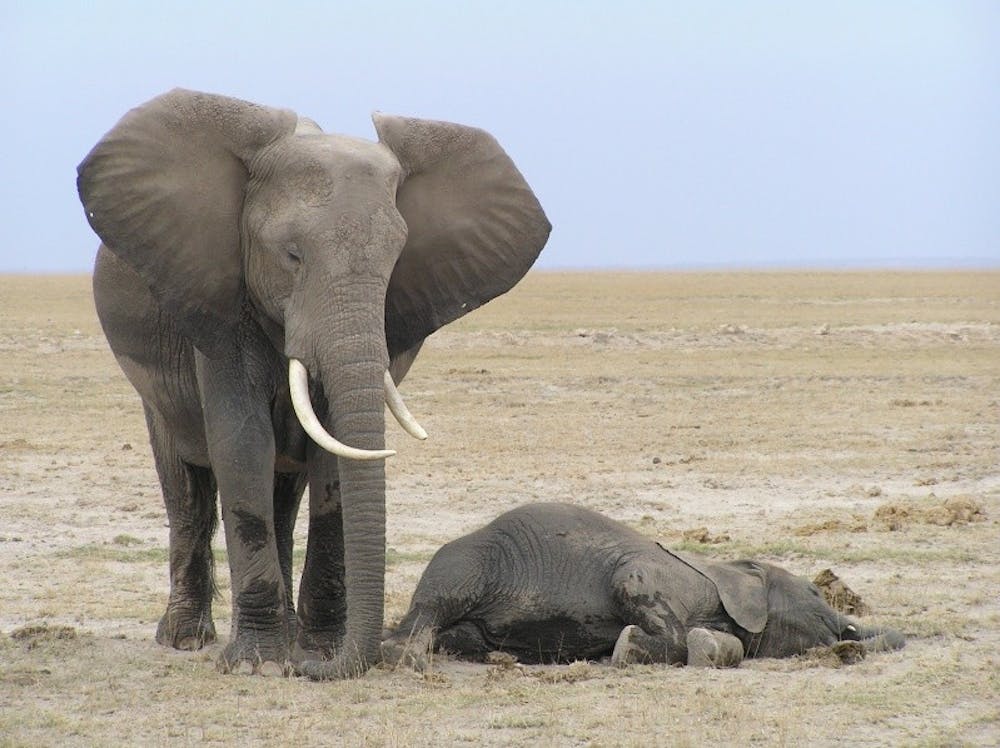To everyday consumers, the Fitbit has become more than just a fitness tracker: It doubles as both an activity log and a fashion accessory. However, through the efforts of researchers who created a scientific version of the Fitbit, the watch is now being used to track sleep patterns outside of our own species.
Sleep is one of the most puzzling biological imperatives, especially since it differs so much from one organism to another.
“While there are many hypotheses regarding the function of sleep, the ultimate purpose of sleep is yet to be discovered,” Paul Manger, professor from the School of Anatomical Sciences at University of Witwatersrand, also known as Wits University, said.
Despite differences among the ways in which organisms sleep, all animals do sleep. A general trend is that animals larger in size tend to get less sleep than their smaller counterparts do.
“Elephants are the shortest sleeping mammal — that seems to be related to their large body size,” Manger said.
Along with Manger, other faculty at Wits University such as Nadine Gravett and Adhil Bhagwandin worked with colleagues from the non-governmental organization Elephants Without Borders, Botswana and the University of California, Los Angeles (UCLA) in order to create a scientific version of the Fitbit. Their efforts took place at the Chobe National Park in Botswana for five weeks.
The team chose to track the activity of the elephant’s trunk, since the trunk is the most mobile and active part of the animal.
Two matriarch elephants were outfitted with several devices, including an implanted activity data logger on the trunk and a GPS collar with a gyroscope for tracking the time, place and position the elephants of the elephants’ sleep.
Among the findings was the data that the two elephants slept for two hours per day on average, with this sleep occurring in the early hours of morning. The sleep patterns of the elephants did not appear to be affected by sunlight, but instead they were affected by other conditions such as temperature and humidity.
“This finding is the first that indicates that sleep in wild animals is likely not to be related to sunrise and sunset, but that other environmental factors are more crucial to the timing of sleep,” Manger said.
It was also discovered that the elephants could sleep standing up. And they usually did. The elephants laid down to sleep only every three or four days, when they seemed to go into rapid eye movement (REM) sleep. REM sleep was initially thought to be vital to the consolidation of memories, but the results of this study imply otherwise, particularly in light of the well-documented long-term memories of elephants.
Additionally, when the two elephants faced a disturbing incident, they could survive without sleep for up to 48 hours. More specifically, they could put up to 30 kilometers of distance between themselves and the source of threat they experienced, by sacrificing a night’s sleep.
It has been observed that any degree of sleeplessness in humans may lead to fatal familial insomnia (FFI) or sporadic fatal insomnia (SFI). FFI involves a loss of neurons in the thalamus, which causes progressive dementia, insomnia and weight loss. Those suffering from this condition usually face death within 12 to 18 months of the first appearance of symptoms.
On the other hand, SFI is like FFI, except that SFI affects only people who do not carry the genetic protein mutation associated with FFI patients.
Regardless of the detrimental effects that a lack of sleep has on humans, neither a lack of sleep nor a lack of frequent REM sleep seems to affect elephants’ capacities for memory.

















